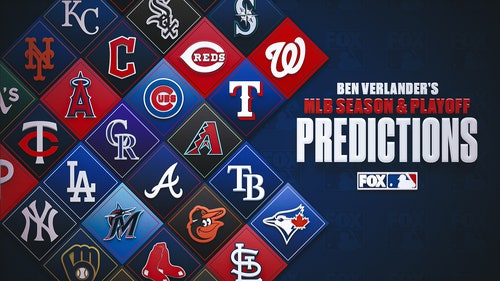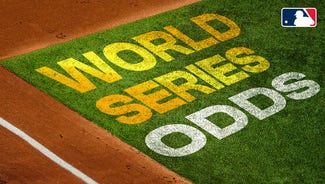
Okay, so where are Mets on the success cycle?
Can one rookie pitcher revive an entire moribund baseball franchise, all by himself? Probably not. Sunday afternoon, though, Mets rookie Steven Matz gave it the old college try.
I just finished a new book: "Baseball Maverick: How Sandy Alderson Revolutionized Baseball and Revived the Mets," by Steve Kettmann. When the book came out this spring, I saw a few comments questioning the, ah, appropriateness of the subtitle. The second part, especially. After all, Alderson had been running the front office for four seasons and all four were losing seasons. Can we declare successful vivification before we’ve seen a winning season?
Well, maybe. There’s a great deal of material in Kettmann’s book about Matt Harvey and Jacob deGrom and Zack Wheeler, and there’s space for Noah Syndergaard and Steven Matz, too.
Last year, deGrom and Wheeler were the only two among those five who actually did anything with the big club. Harvey was rehabbing, and Syndergaard and Matz were still in the minors.
What the book’s subtitle presupposed – and by the way, subtitles are marketing tools, not thesis statements – was that soon, maybe as early as this season, all those guys wound up together to compose the most interesting, hardest-throwing rotation in the majors.
Well, it hasn’t quite worked out. Close, though? Harvey and deGrom and Syndergaard have all been quite impressive, now here’s Matz, just up from the minors and setting records and whatnot:
Steven Matz is the first pitcher - and first @Mets PLAYER - to have 4 RBIs in his @MLB debut. http://t.co/J5T80JJDmw pic.twitter.com/BbBg6qNA6a
— MLB Stat of the Day (@MLBStatoftheDay) June 28, 2015
Oh, and he pitched well enough to earn the W in his debut, too.
The only thing that’s missing is Wheeler, out for the season while recovering from Tommy John surgery.
Four out of five ain’t bad.
Alderson can’t take all the credit for Harvey, deGrom, and Matz, all of whom were in the organization before he arrived. But he traded for both Syndergaard (from the Blue Jays) and Wheeler (Giants), and did shepherd the other three through the system. What this entire quintet has done is make the Mets, if not quite good yet, at least interesting. Vital, even.
Whether all that qualifies the Mets as revived is up to you. They do seem more relevant at this moment than they’ve seemed in a long while. Maybe not since the last day of the 2008 season, when a victory would have forced a one-game playoff for the wild card. But they lost that one, and have lost a bunch since.
It’s fair, I think, to wonder what’s taking so long.
Kettmann’s book is worth reading as a sort of Alderson biography, but there’s also a great deal of material about the construction of the Mets’ current roster, and its attendant expectations. In a passage about getting David Wright locked up with a new long-term contract, Kettmann quotes Wright in a conversation with Alderson:
Sandy, I have a love for this organization that runs deep. I want to be here, but if I’m going to go all in and put my chips in, I want the same in return from you. I want you to go all in and give it to me straight. If you say that this is how it’s going to be and this rebuilding process is going to take longer than expected, then you know what? Maybe this plan is better without me.
According to Kettmann, Alderson convinced Wright that in 2014, with Johan Santana’s and Jason Bay’s dollars off the books, the Mets would be a playoff-caliber team. So Wright signed what Kettmann describes as a “so-called team-friendly contract in many ways, with deferred salary and a middle-loaded structure” (for eight years and $138 million).
Indeed, the Mets actually tried to win in 2014, spending real money on free agents Bartolo Colon and Curtis Granderson.
It wasn’t enough. Colon pitched well, but Granderson was just decent and Harvey didn’t throw a single inning.
But hey, what’s a year? Wright seems like a patient fellow, and anyway he’s signed through 2020. It’ll just be 2015 instead! Especially with the Mets doubling down on old outfielders and signing Michael Cuddyer!
Except Cuddyer’s been terrible this season. And Wheeler got hurt. And David Wright played in just eight games before going down with the awful-sounding spinal stenosis, and at last report he still hadn’t resumed any baseball activities. Which means his contract isn’t looking quite so “team-friendly” as before.
The Mets’ pitching staff has been revived. Oh, how it’s been revived. And just wait until Wheeler’s back next spring. You know, if his recovery’s on schedule. And nobody else gets hurt.
But the Mets are currently 14th in the National League in scoring, slugging percentage, and OPS, and it’s not abundantly clear that they’ll do much better next season.
Back in 2002, Jonah Keri wrote an influential piece about the Pirates and their place on the “success cycle,” which is something that we’ve come to talk about all the time. I’m hoping to spend some real time with the concept after the World Series (if not sooner). But there’s a problem with pinning a team’s fortunes to the success cycle: that little bugger’s got a tendency to move around on you in a real hurry, often due to things over which you’ve shockingly little control.
Alderson did play a large role in the revolutionizing of baseball. The Mets, though? That’s up to Alderson, but also to the many-splendored, oft-cursed Fates.











































































































































